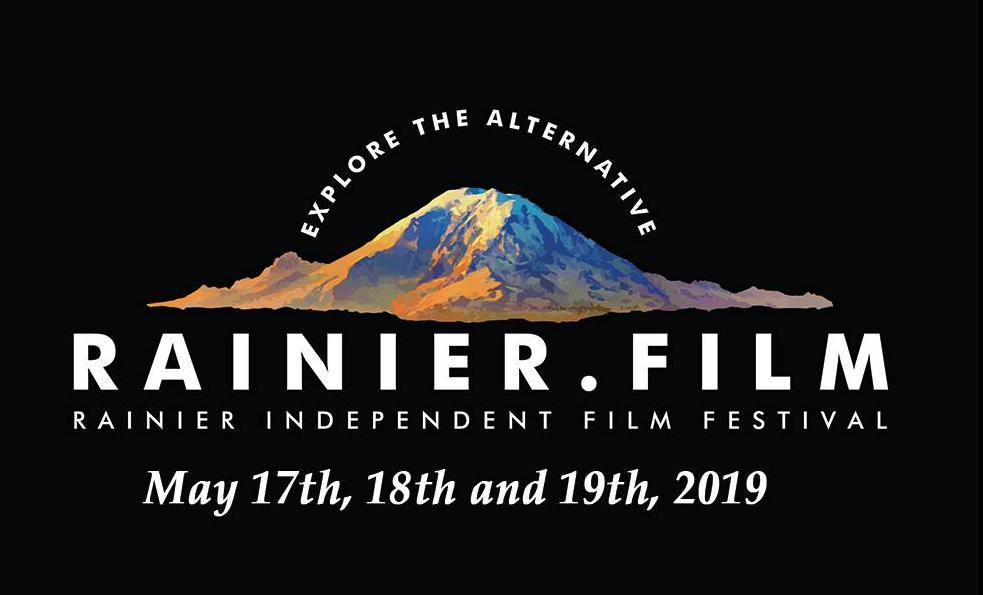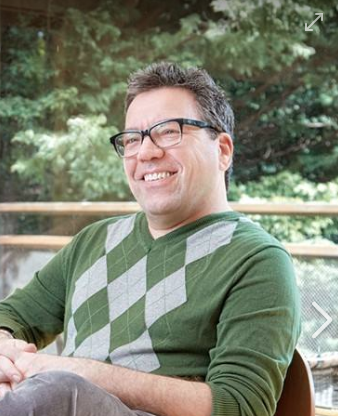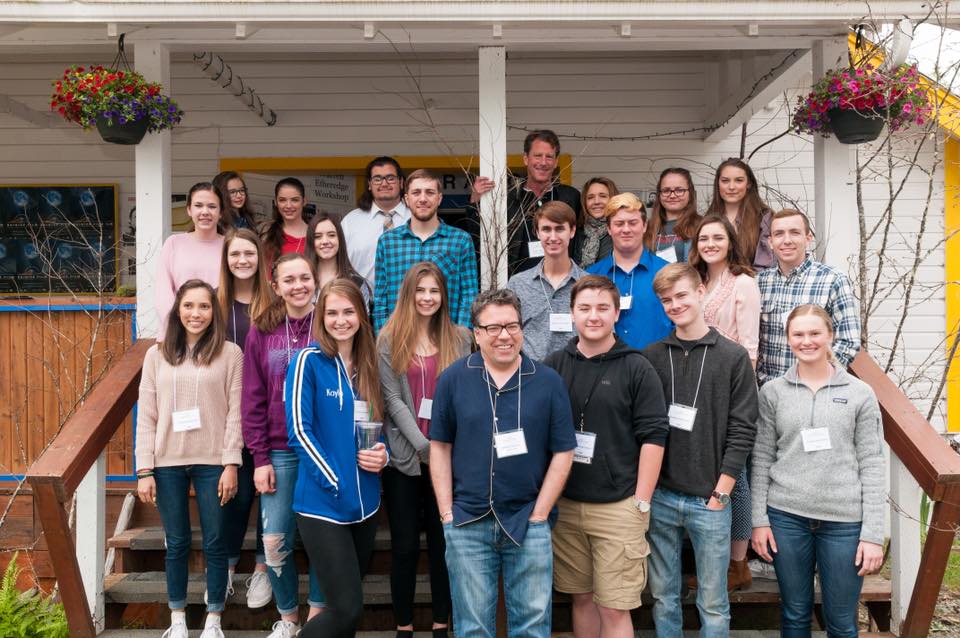Blog
Meet a Storyfinder: Warren Etheredge
Seattle-based screenwriter, film critic, film festival curator/programmer, and instructor Warren Etheredge plays an important role in the Northwest film scene. This May, he’ll visit Mineral School during our debut screenwriter residency to talk to screenwriting residents who join us from Bahrain, Denver, the San Francisco Bay Area, and metro Seattle. This residency is offered in partnership with the Rainier Independent Film Festival (RIFF) which Warren co-founded. Here he shares how he thinks about storytelling for the screen and craft themes he might share with Mineral School residents. Seattle fiction writer and Mineral School super-volunteer Kait Heacock conducted this interview.
You wear a lot of different hats in the film industry, from production to criticism. What is it like to switch between roles? Is there a thread that ties them together?
I have experimented with just about every role one could have in the film and television world and consider them all linked by Story. The writers create and all members of a production team, behind and before the camera, are in service of that story. A producer does what she can to ensure that treasured Story is mot fully realized, the Storytellers properly supported. The job of a curator, critic or acquisitions VP is merely to evaluate how successfully that original Story was delivered. So, if anything, it is fun to switch between them as it reminds me to always consider the perspective each different role requires.
You call yourself a “Storyfinder.” What does that mean to you, to others?
Many years ago, I invented a process to help me develop my own stories; it requires a fair amount of personal, emotional spelunking — even if the written work is fictional. As I began teaching this approach to others — high school students, college students, combat veterans, ex-offenders, abuse survivors and aspiring and professional screenwriters — I coned the phrase Storyfinding as it seemed more accurate for the work I do. There’s a misleading expression — Everyone has one story inside them — when in fact, we all have many. It’s just a matter of “finding” them and I believe I can help most make those discoveries.
What projects are you working on now? Next?
Upon the turn of the New Year, I made a list for the very first time, of all the projects I currently have in process. I counted 23. Yipes. That’s a whole bunch of short films plus a feature, a tv series and a web-series I am producing along with a few projects I intend to direct and several book and multimedia projects I’d like to complete this year.
 What can writers learn from screenwriters? And what can screenwriters learn from prose writers?
What can writers learn from screenwriters? And what can screenwriters learn from prose writers?
Writing prose and writing screenplays are very, very different forms — the contrast as great as that between a commercial jingle and a Sibelius symphony. Both are exacting crafts and can be exquisite but the forms are radically dissimilar. That said, a screenwriter can learn a lot about visual storytelling from a novelist who, in turn, can learn about editing from her counterpart.
How is a screenplay’s narrative like and unlike that of a good work of fiction?
The core elements of Storyfinding and storytelling are the same in every medium: character, emotion, structure. However, what most ignore is that a screenplay is closer to a short story in its limitations — for worse and better — than it is a novel… which explains why so many books do NOT make good movies.
Who’s the most unsung or under-rated screenplay writer out there?
This is like asking a parent to pick their favorite child. Of course they have one but will never say. But since you asked nicely, I’d like to give a shout-out to some marvelous up-and-comers: Alison Becker, Anna Baumgarten and Erin Sanger. Finally, I could have earnestly answered Lindsay Stidham, but as I am (contractually bound and) determined to produce her short and feature this year, I like to think she won’t remain unsung for long.
What stories are tomorrow’s screenwriters going to tell?
I hope better ones. I hope stories that ignore The Hero’s Journey. What the world needs now are stories by women, people of color and under-represented communities — along, I suppose, with stories by straight, white men that explore what their particular status affords them. There is a definite and passionate reason why I have chosen to dedicate my producing efforts to shepherding works by women and female-identifying artists: because… it’s about time! The screenwriters I named are tacking issues such as mental health, joy, suicide, love, sexual assault, family, gun violence, friendship, addiction, homelessness, home and hope and so much more. What separates their work from others in those realms, is that they approach their material with humor and heart, as well as great intelligence and dramatic chops. Comedy and compassion elevate their stories to the indelible.
Warren is serious about tomorrow’s filmmakers — he’s pictured front and center, below, with middle and high school student filmmakers who participate in RIFF!






